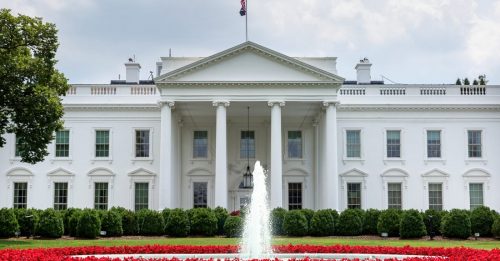The American Bazaar 22 June 2023
SHARE
By Sunita Viswanath, Dr. Abdulsaleh Shariff and John Prabhudoss
The Prime Minister of India, Narendra Modi is being welcomed on a state visit to the United States this week, along with a state dinner. While The Economist proclaims, “Narendra Modi is the world’s most populous leader,” and the White House promises, “The visit will strengthen our two countries’ shared commitment to a free, open, prosperous, and secure Indo-Pacific and our shared resolve to elevate our strategic technology partnership, including in defense, clean energy, and space,” we wish to express deep concern. There is nothing open or prosperous about Modi’s India. What is more, the richest industrial corporations in India – Vedanta, Adani, Ambani, Tata – who are backing his government are among the worst polluters on our planet.
We are three Hindu, Muslim and Christian Indian Americans, a present-day “Amar Akbar Anthony,” all of whom remember wistfully the heyday of an Indian past signified by the pride of ordinary Indians in India’s inclusive and secular democracy. Today’s ordinary Indian is asked to be proud of yoga and a glorious Hindu past. Public school textbooks have removed the lessons on India’s Mughal period of history. Today’s India favors the majority Hindu community, and disregards the rights and rightful place of Muslims, Christians and other minority communities.
President Biden has led a chorus of politicians and businesses who insist that India will become the US’s most important economic and security partner. India’s burgeoning population of 1.4 billion has made it the biggest market in the world, which is poised to become the third largest economy in 2030 with a nominal GDP of $3.5 trillion, is the biggest economic opportunity that American businesses will encounter in a long time. And yet, these economic opportunities will leave Indians behind.
Abroad, Prime Minister Modi touts India’s economic growth. But this belies the worrying economic realities most Indians face. India is currently 132 out of 191 countries on the human development index. India ranks 135 out of 146 on the gender gap index, and even though women are enjoying more economic opportunities, gender-based violence is on the rise. This is especially true for women from minority backgrounds. India’s perceived economic growth has left workers behind – the country’s unemployment rate hovers around 7-8%, youth unemployment is around 20-24%, and only 9% of women participated in the labor force in 2022. And climate change threatens to further impoverish Indians. Because of unprecedented heat waves, in 2022, farmers were forced to reduce their productivity and profits at a time when the global grain supply was already strained by the war in Ukraine. Despite these economic challenges, Modi has been hailed as an economic “visionary,” which the Administration has used to justify its rush to fete Modi as America’s favorite Asian leader.
Among Indians and in the Indian diaspora, it is Modi’s Hindu nationalism built on a framework of hatred towards Muslims, that has galvanized huge support. Instead of addressing real economic pains that Indians endure, the ruling Bharatiya Janata Party has instead decided to blame Muslims as the cause of Hindu pain in India. Instead of helping farmers out of deadly debt crises, Modi’s allies decry constitutional protections for Indigenous land and claim “land jihad” to forcibly evict Muslims from their lands. The catastrophic second wave of Covid was blamed on Muslims and called “Corona Jihad.”
Sometimes, though, organizing around hate backfires for the BJP, which is when the Indian government decides to close civil society spaces. When the Indian government announced harmful reforms to farm bills, primarily Sikh farmers staged a massive protest, even shutting down the city of Delhi. In response, Hindu nationalist allies of the Indian government began defaming the protesters as terrorists and anti-nationals. When these bigoted attacks didn’t break global solidarity for Indian farmers, the Indian government cracked down violently on protesters and took authoritarian steps to silence the global Sikh community. The government had to ultimately repeal their reforms to the farm laws.
When the Indian parliament passed the explicitly Islamophobic Citizenship Amendment Act (CAA), Indian citizens took to the streets across India in protest. The protesters gained support across the globe and across ideological lines. In response, the Indian government cracked down on protests brutally, and when Hindu nationalist mobs tore through Muslim neighborhoods in Delhi, Delhi police joined the pogroms. Authorities rounded up hundreds of Muslim protest leaders under draconian anti-terror laws, ramped up surveillance of human rights activists and journalists, and even conducted demolitions against some Muslim movement leaders. The anti-CAA protests became the quintessential story of how this Hindu nationalist government represses its critics, especially those from Muslim communities. This is not how the world’s largest democracy should behave. And it’s certainly not the secular and pluralistic Indian Republic that Ambedkar, Nehru, and Gandhi envisioned.
While the world witnesses America’s red carpet welcome to the leader of the world’s most populous nation, we appeal to President Joe Biden’s conscience. How much democratic backsliding can you tolerate for geopolitical and business interests? How many Muslims and Dalits must be lynched? How many activists and journalists must be surveilled and arbitrarily arrested? How many churches can be burned down before America begins to sound the alarm?
Modi’s India is a divided India. Our very act of writing together is an act of resistance to and defiance of Modi’s policies. “Amar Akbar Anthony” seems to be a feeling of yesterday, a film that could not be made today. A divided India with a fallen democracy will not be a good ally for America. The writing is on the wall.
(Sunita Viswanath is the Executive Director of Hindus for Human Rights. Dr. Abdulsaleh Shariff is Chief Scholar at US-India Policy Institute. John Prabhudoss is Chairman of the Federation of Indian American Christian Organizations.)

